AITA for being pissed that my DIL won’t accommodate my allergy so I am not going to her dinner?
For years, one devoted parent has gone the extra mile—literally cooking extra dishes—to accommodate her daughter-in-law’s vegetarian lifestyle. But when it comes to her own nut allergy, the tables suddenly turn. Her simple request for a single nut‐free option was met with a dismissive “bring your own food” from her daughter-in-law.
This isn’t just about food; it’s about fairness, mutual respect, and the unspoken expectations that bind family gatherings. The simmering frustration of a parent who feels overlooked invites us to explore how even small culinary compromises can reveal deeper relational rifts.
Set against the backdrop of home-cooked dinners and cherished traditions, this tale turns a routine meal into a battleground of values. When one family member’s dietary needs are consistently unreciprocated, the outcome is an emotional recipe brimming with hurt pride and exasperation. The issue raises a simple yet poignant question: How much effort should each side invest in accommodating the other’s needs?
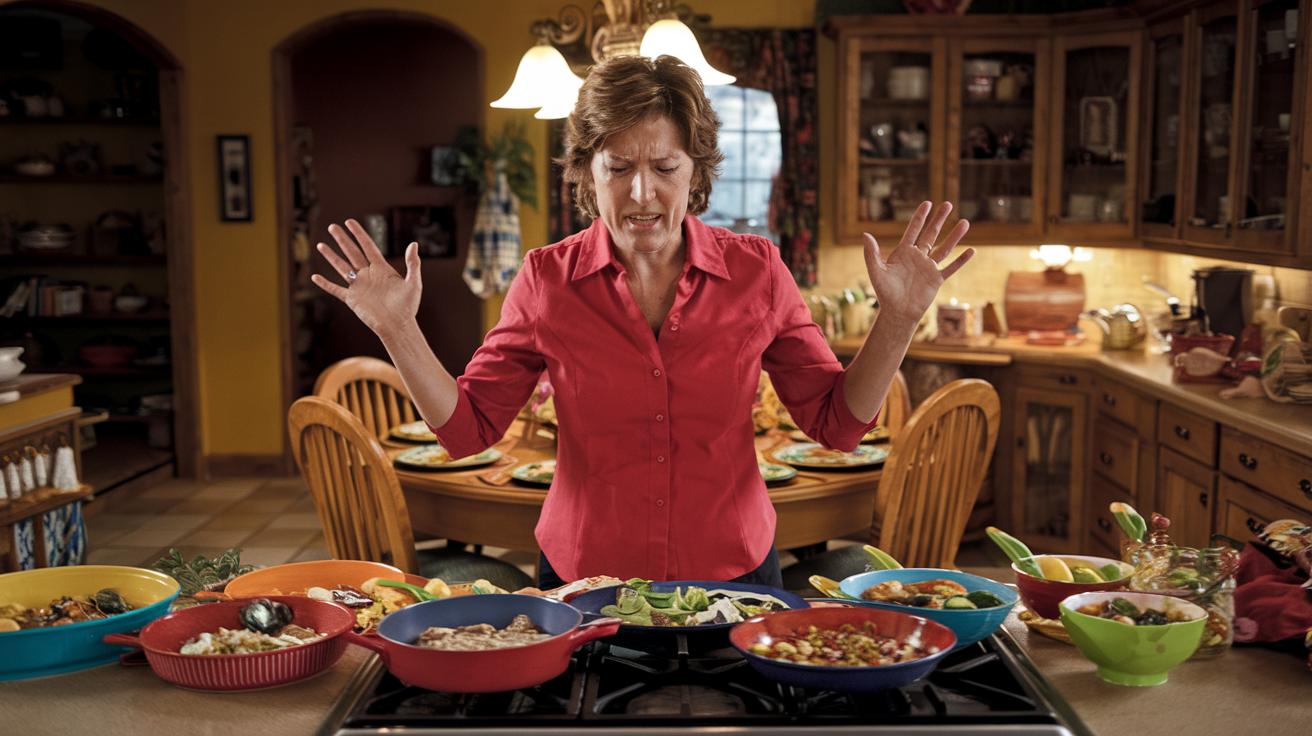
‘AITA for being pissed that my DIL won’t accommodate my allergy so I am not going to her dinner?’
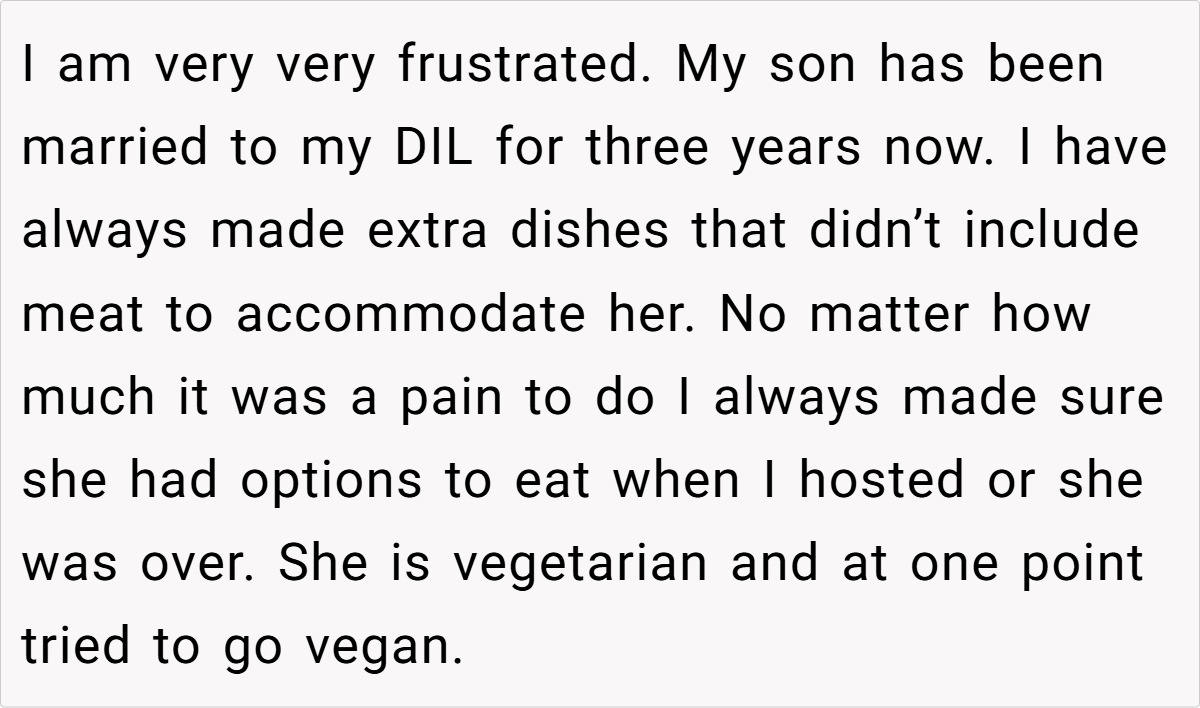
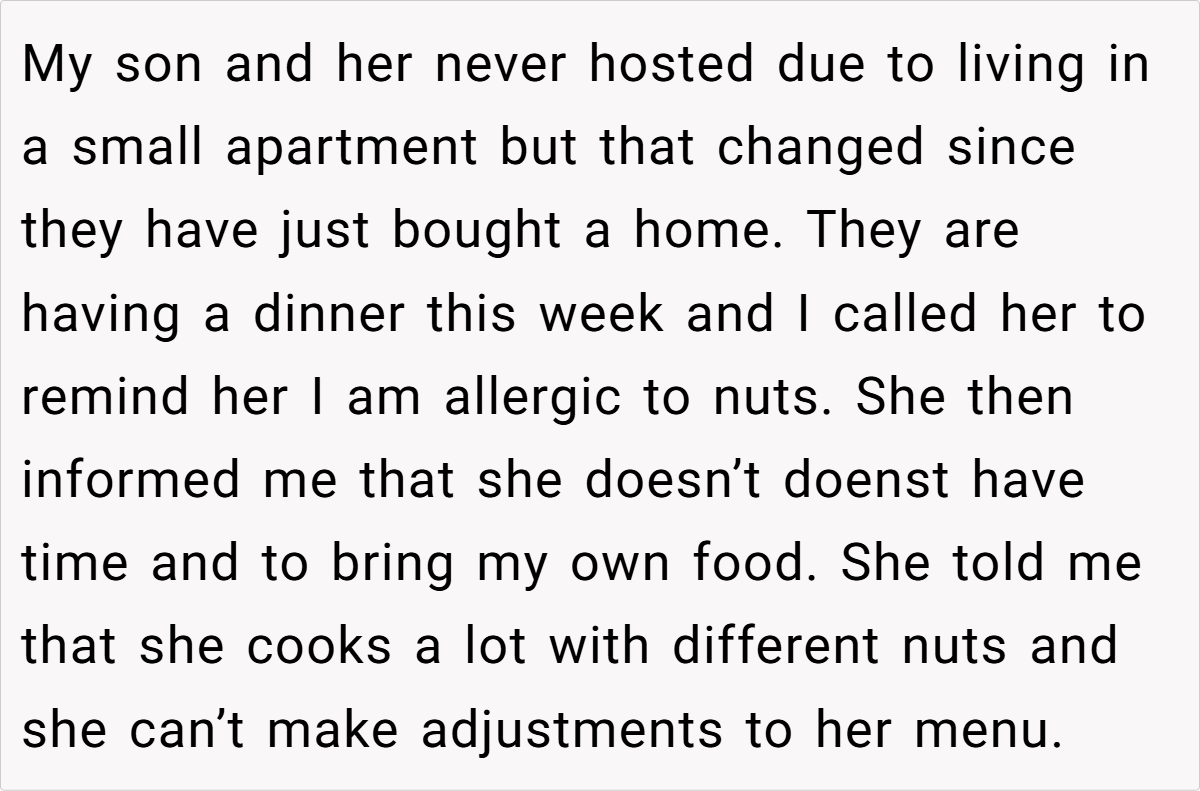
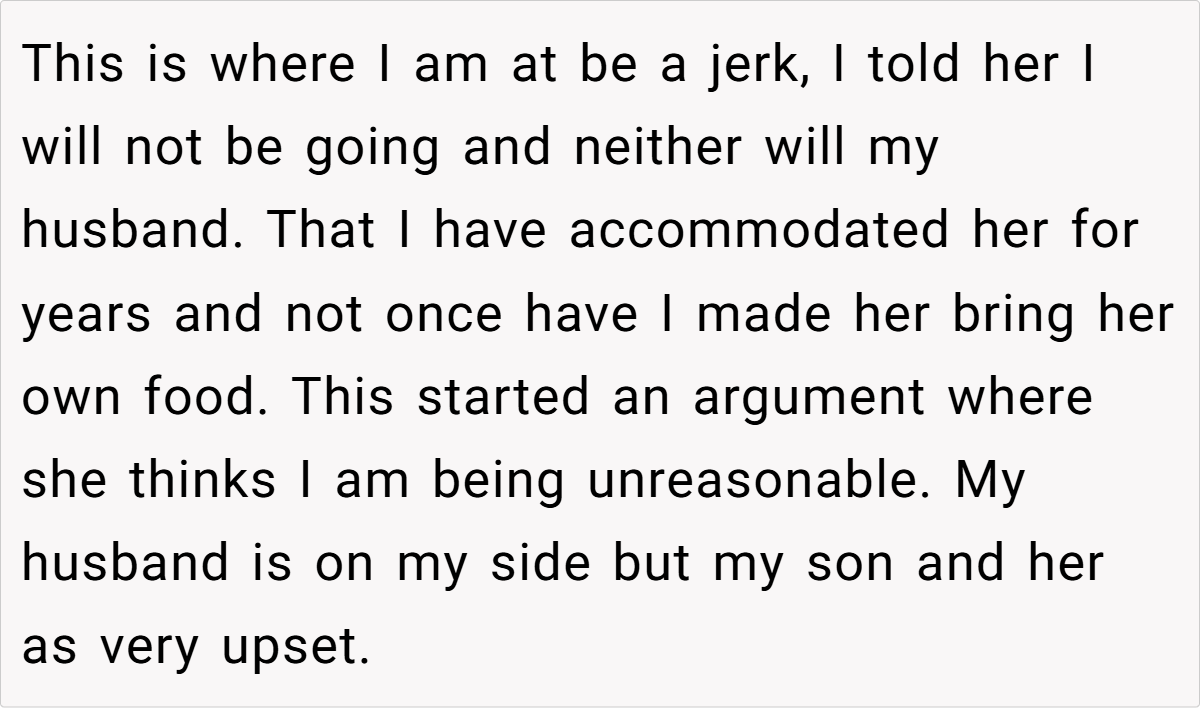
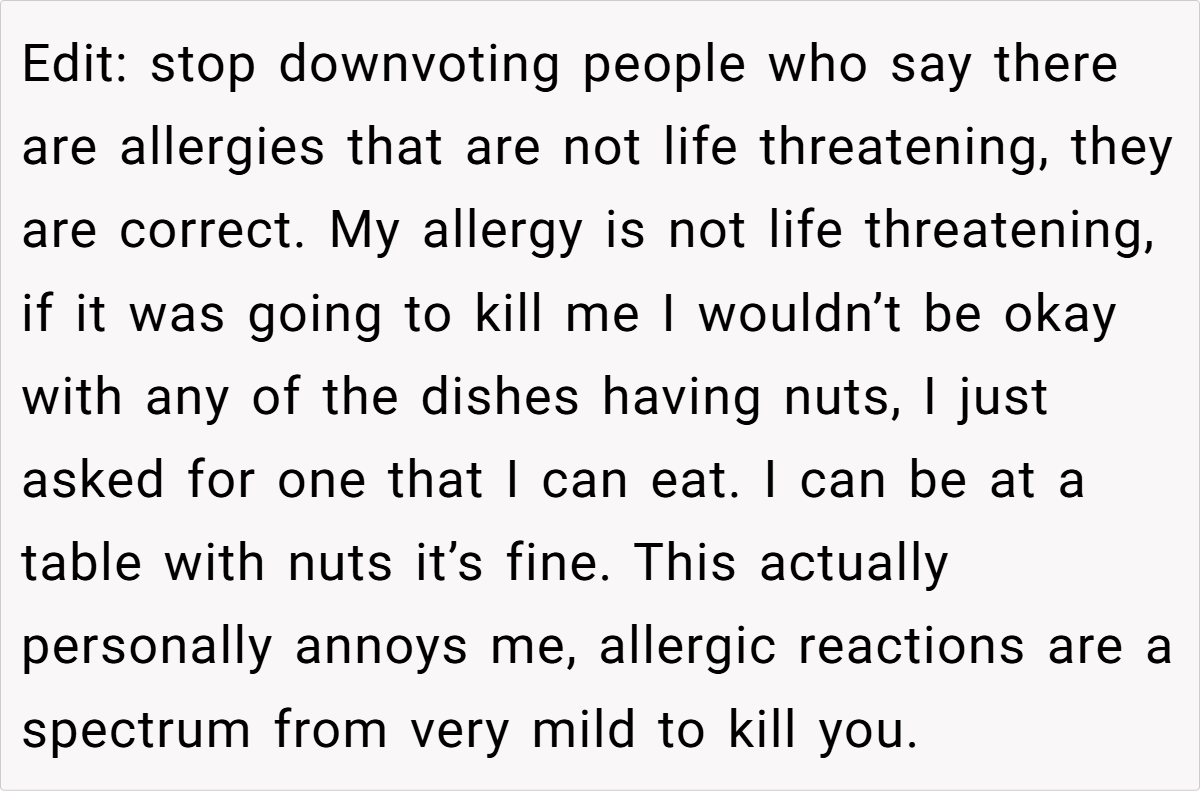

When evaluating this family feud, experts emphasize that food allergies, regardless of perceived severity, demand thoughtful attention and clear communication. Hosting isn’t merely about culinary flair—it’s about respecting each guest’s health concerns. Recognizing even a mild allergy as a legitimate need can prevent feelings of isolation and ensure that everyone feels cared for during family gatherings. Dr. Nancy Polmear-Swendris of Michigan Medicine explains, “All it takes is a trace amount of an allergen to trigger an allergic reaction for many people.”
Although the parent in this case argues her nut allergy isn’t life-threatening, her request for a safe dish is rooted in a broader understanding of allergen unpredictability. Even minimal exposure can lead to distress or worse, underscoring why accommodations should be taken seriously by any host.
From a family dynamics perspective, mutual accommodation is essential. Just as the parent has continually adjusted her menu for her daughter-in-law’s dietary choices, it is reasonable for her to expect similar consideration when her own health is at stake. Ignoring a guest’s allergy—even if the risk appears low—can signal a lack of empathy and willingness to compromise. In this light, the situation is less about rigid culinary preferences and more about honoring each family member’s well-being.
Social etiquette experts also remind us that a dinner party should be an inclusive celebration, where every guest can dine with confidence. When a host simply dismisses an allergy by insisting the guest “bring their own food,” it may inadvertently convey that the guest’s needs are an inconvenience. A small, safe dish can be the difference between a harmonious evening and one marred by unspoken resentment.
Ultimately, clear communication and reciprocal effort form the foundation of respectful hospitality. Families should discuss dietary restrictions well in advance and strive for compromises that allow everyone to enjoy the meal. Whether through alternative recipes or pre-planned adjustments, ensuring that every guest’s needs are met not only prevents potential health issues but also strengthens family bonds and trust.
Here’s what Redditors had to say:
Here are some candid, humorous hot takes from the Reddit community that capture the raw reactions to this heated dinner dilemma. One commenter quipped, “Allergies aren’t food critiques—they’re serious business!” while others lamented, “Why should one side bear all the extra cooking when both should share the load?” These opinions, full of wit and relatable sentiment, remind us that while the stakes are high, a little humor can help ease the tension.
WholeAd2742 − NTA. Allergies are not food critiques, you literally can die from a bad reaction. The fact you were accommodating for her dietary requests and then she is completely dismissive of your actual needs is absurd. Definitely don’t go to a dinner when the chef is blase about trying to kill you
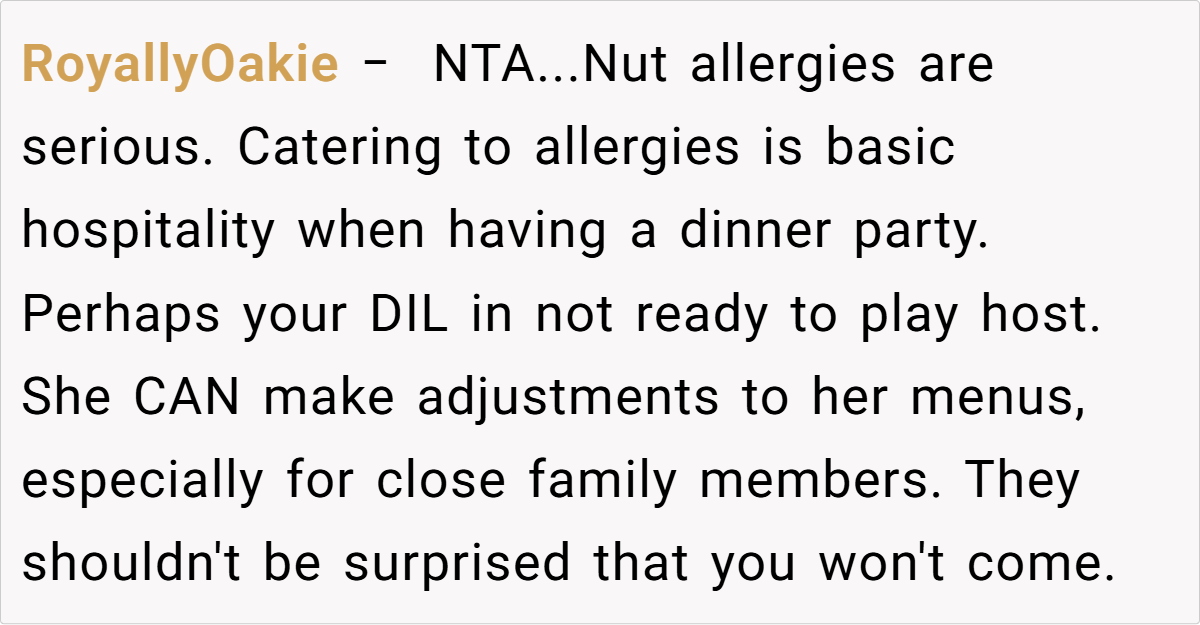
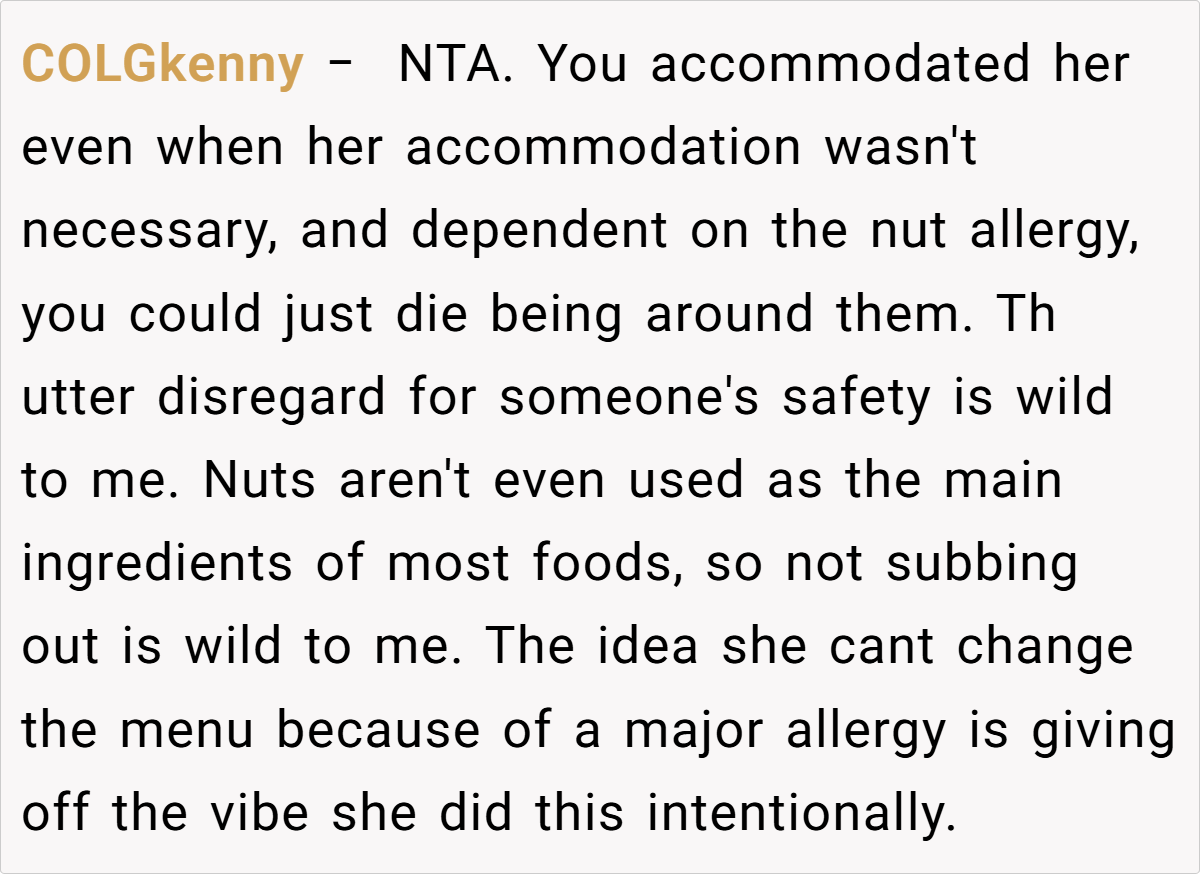
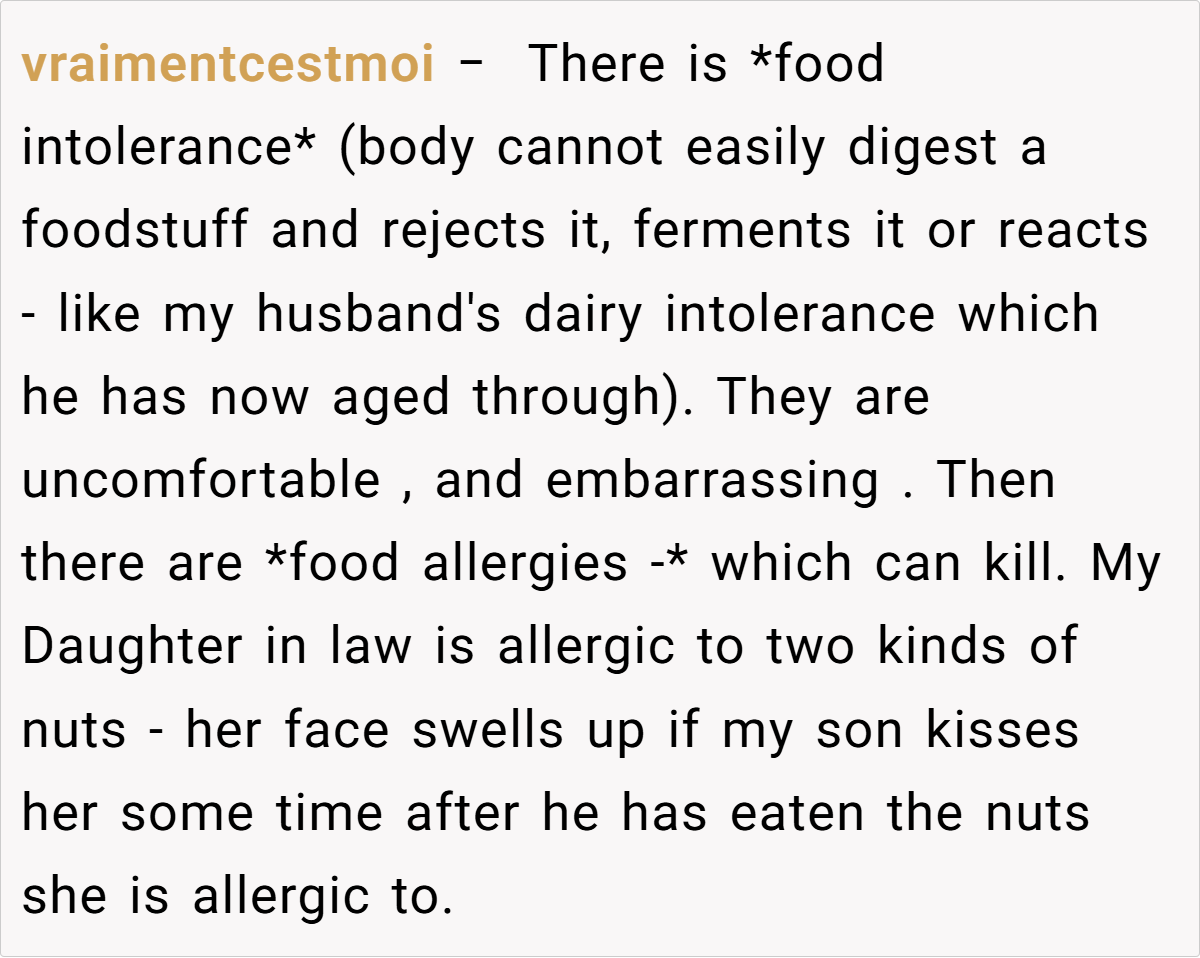
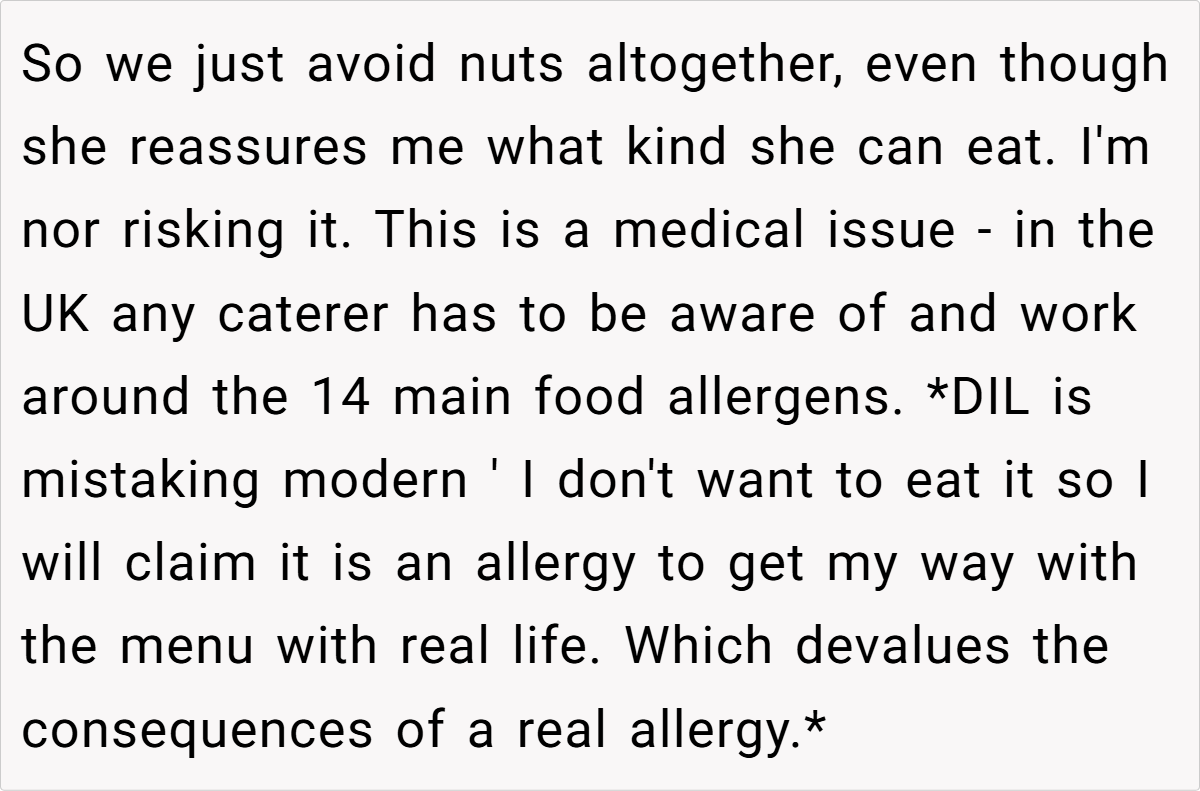
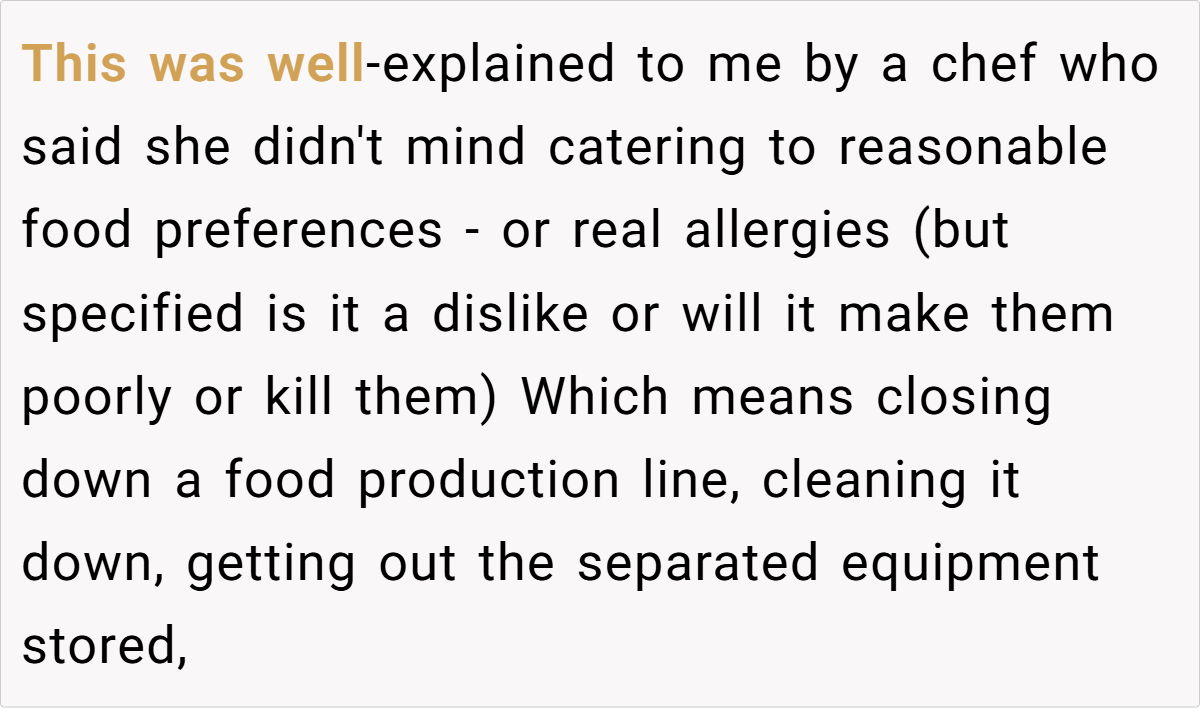
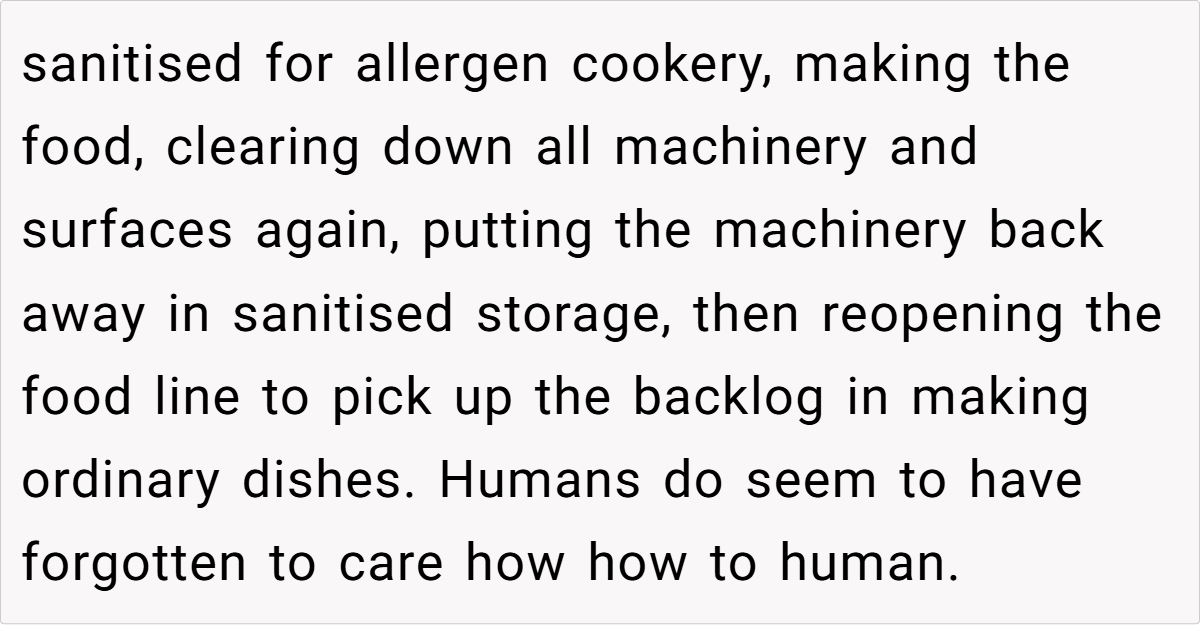
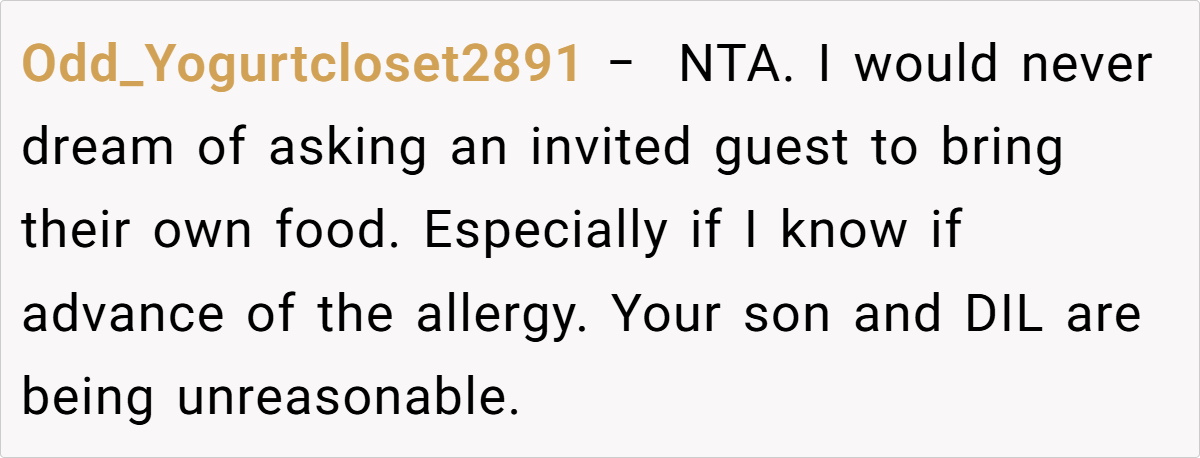



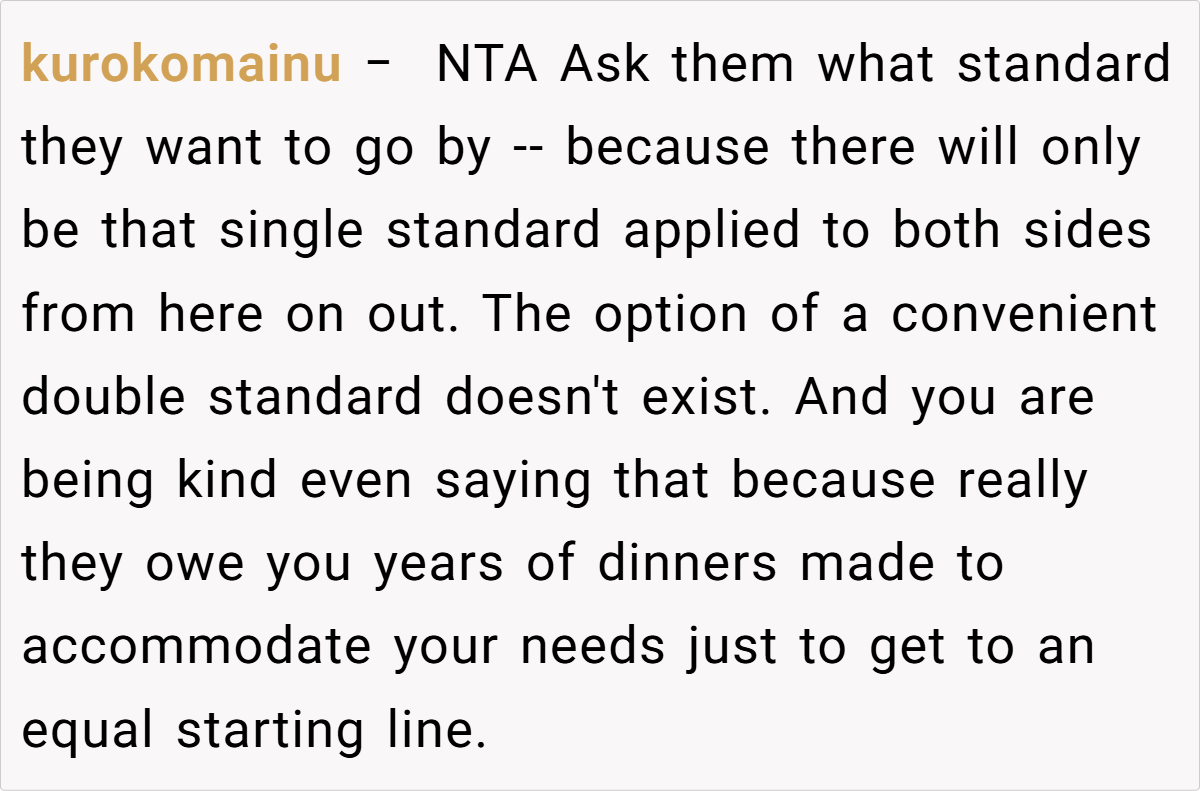

In conclusion, this family feud over dietary accommodations is more than a squabble about food—it’s a call for mutual respect and understanding in our closest relationships. When one party is expected to always bend over backward without reciprocation, feelings of isolation and injustice inevitably simmer. What would you do if you were caught in a similar situation? Share your experiences and insights in the comments below. Let’s discuss: How can families better balance personal health needs with collective traditions?

